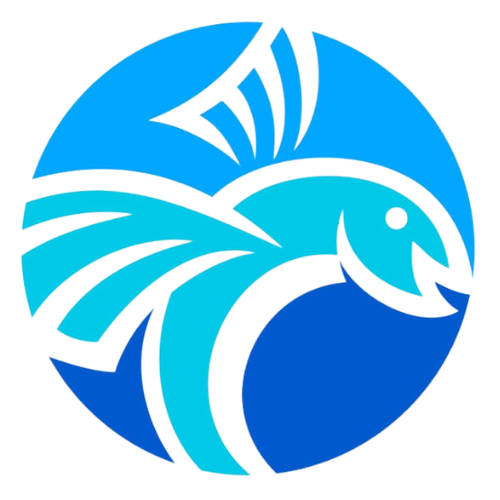Under the Strategies, technologies, and social solutions to manage bycatch in tropical Large Marine Ecosystem Fisheries (REBYC-III CLME+) project, funded by the Global Environmental Facility (GEF), Fisheries Extension training was held at the Barbados Fisheries Division for its staff during the week 7-11 July 2025.
Fisheries is an industry that Barbados heavily depends on; livelihoods, nutrition, and contribution to the island's Gross Domestic Product (GDP) are all benefits that come as a result. However, it is important to acknowledge the pressures fishing can have on marine life that are not the main targets and Endangered, Threatened and Protected species (ETP) such as marine turtles, marine mammals, sharks and rays and associated high levels of discards. Therefore, for the long-term health of marine ecosystems and sustainable fisheries, provisions need to be put in place.
Workshop outcomes
Staff were educated on the pathways that need to be taken to ensure a profitable fishery that protects marine life through smarter and sustainable gear through training on basic change management theory and the steps needed to foster changes in behaviour, how to reach the desired outcome of voluntary adoption of new or modified fishing gear by local fishers, and effective extension and outreach practices to facilitate change in behaviour and practice by fishers.
Presentations focused on the various methods that can be employed in the effort to reduce bycatch: sustainable gears such as circle hooks to replace J-hooks, the use of electronic and vessel monitoring systems to keep track of what bycatch and ETP species are being caught and where and to aid in traceability and international standard compliance.
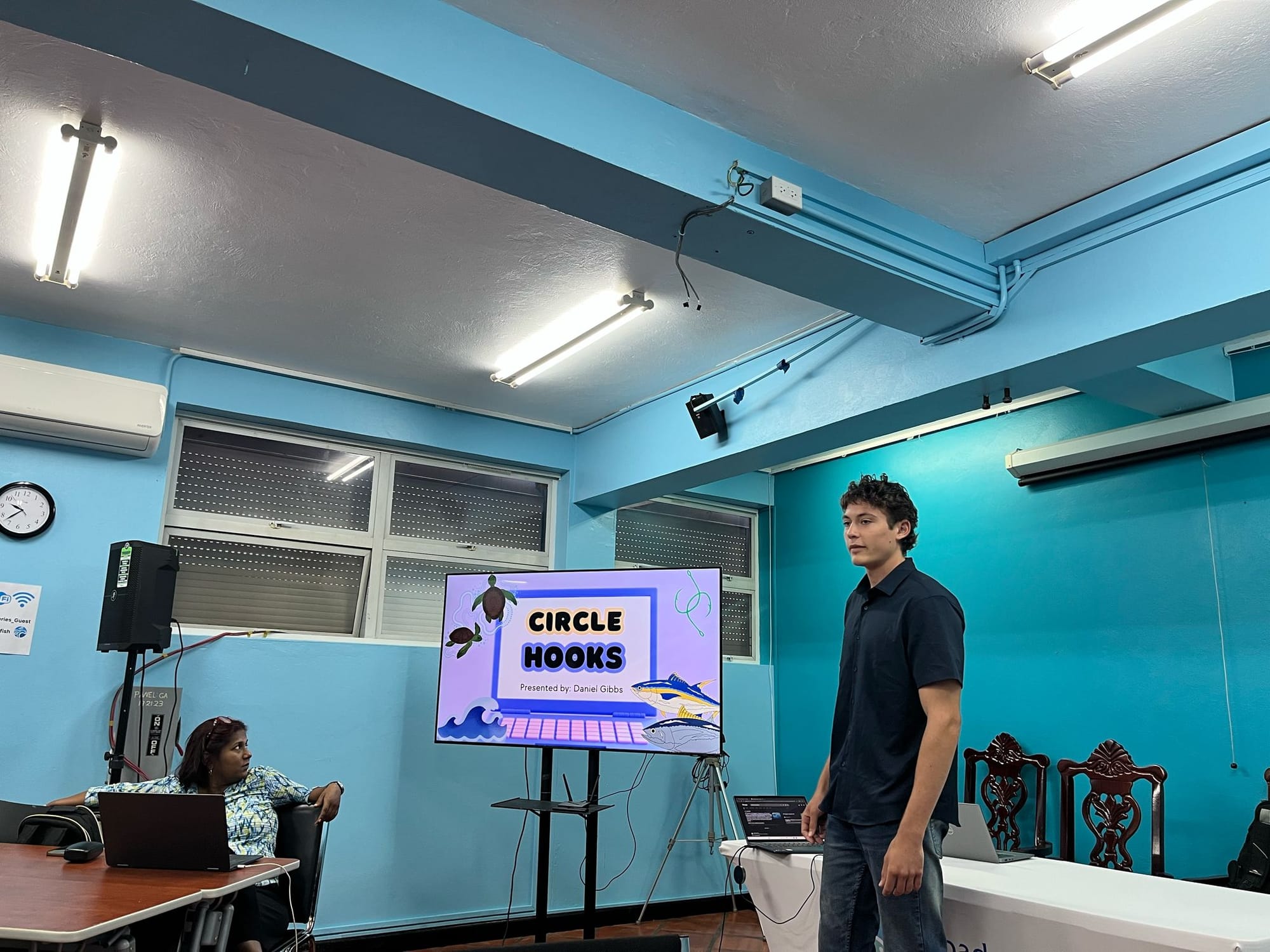
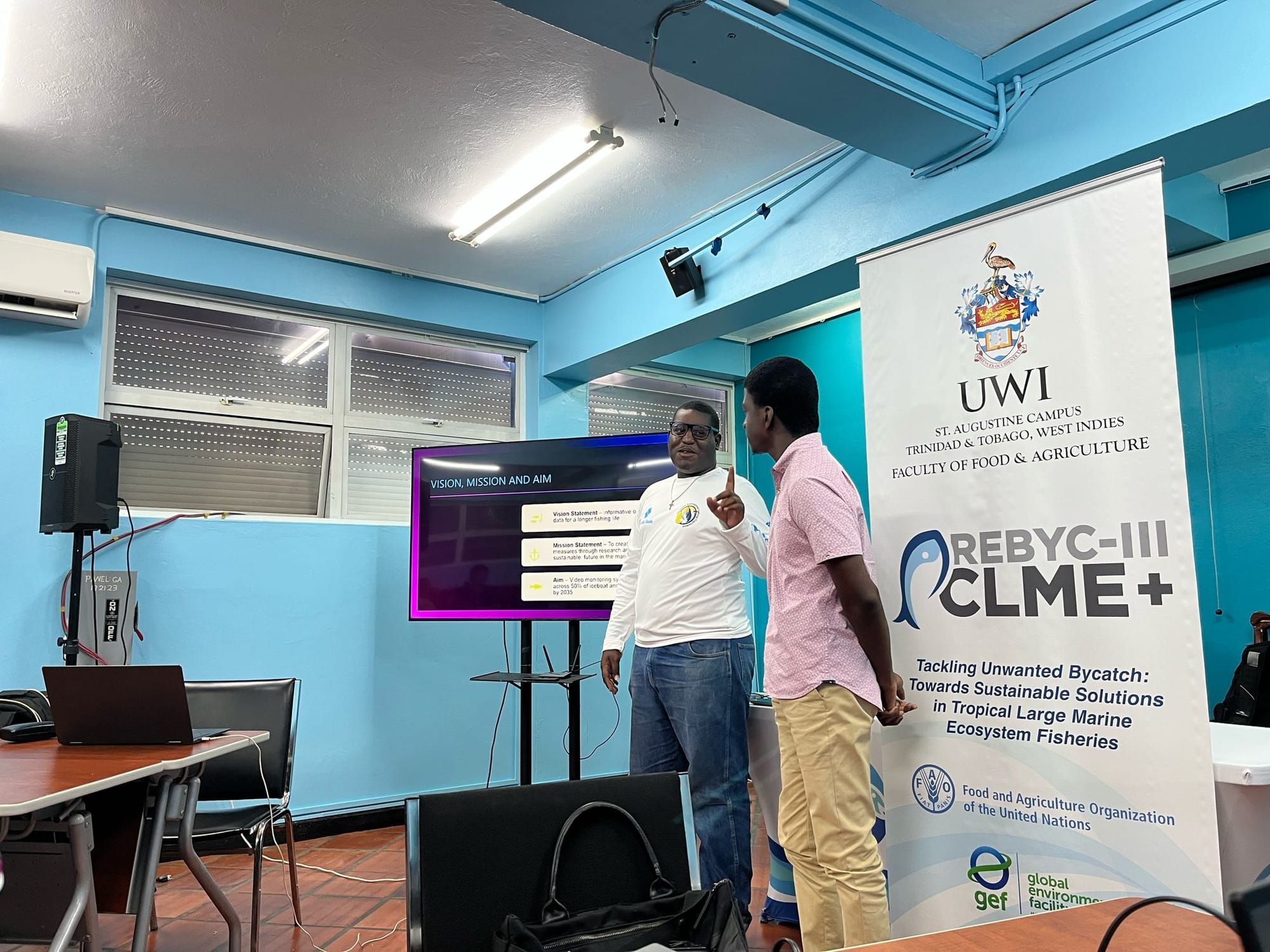
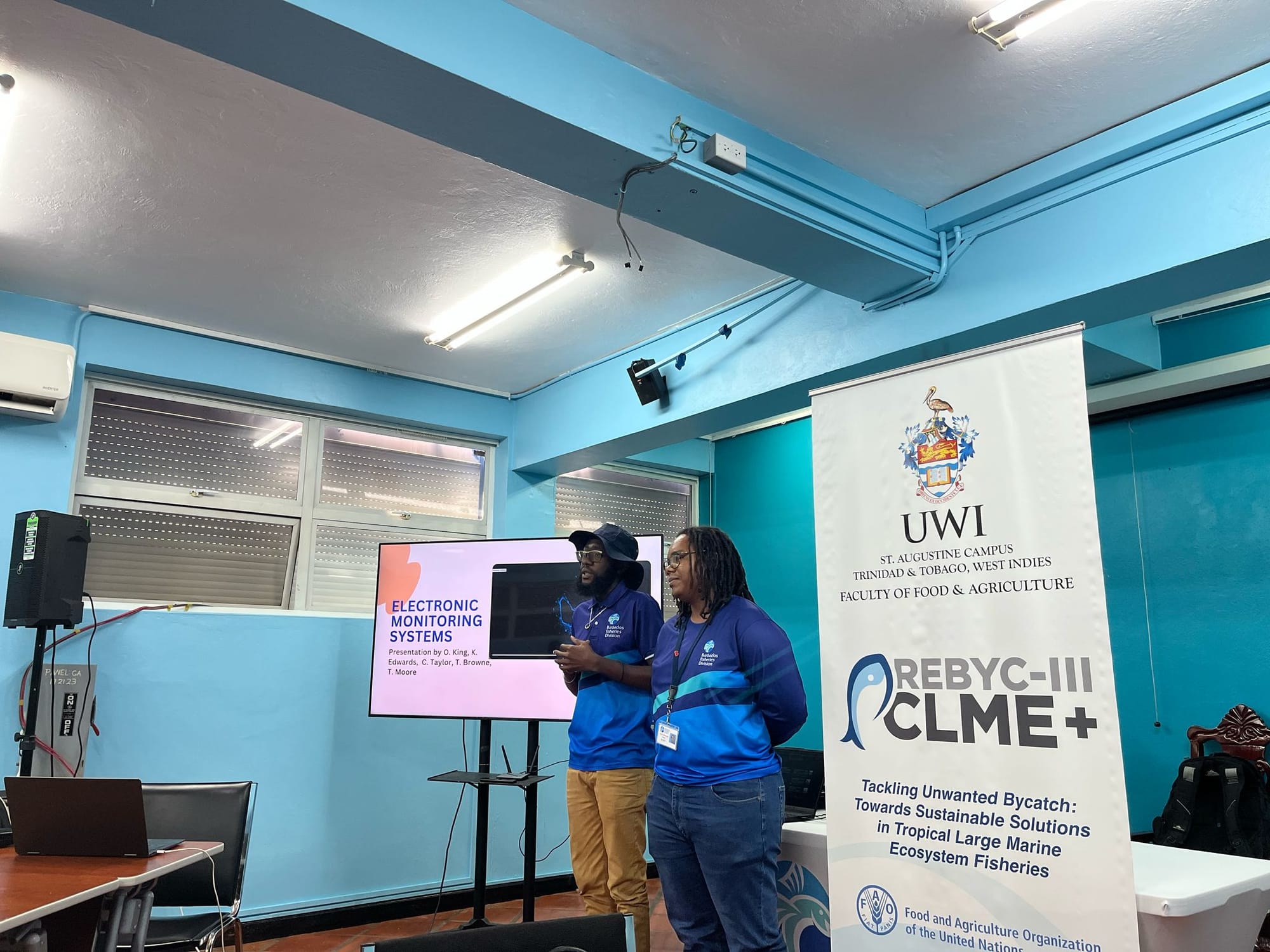
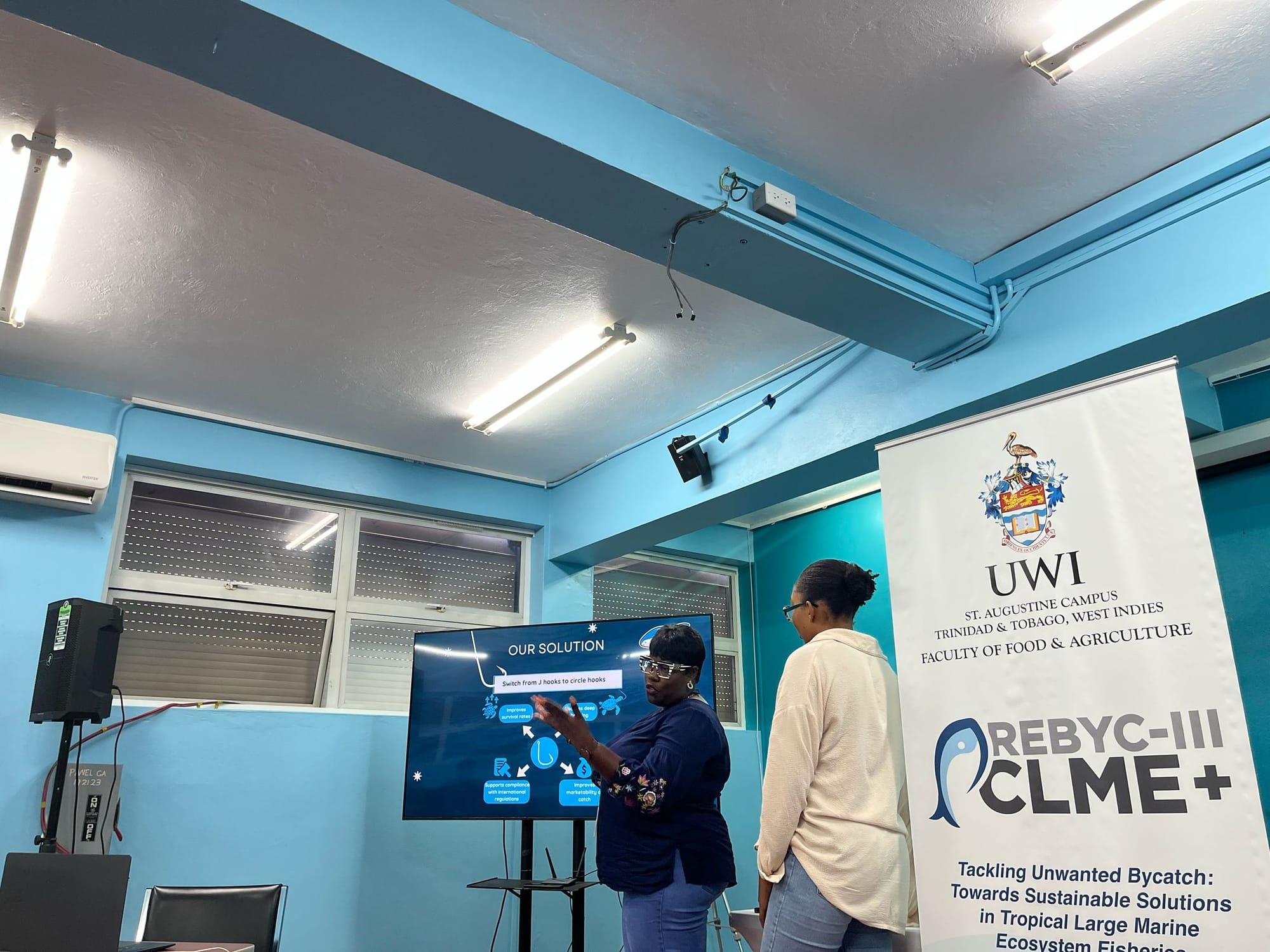
The completion of this workshop saw project staff with a greater understanding of change management and the theory of change and have gained the refined skills and knowledge necessary to facilitate the extension and adoption of new or modified fishing gear to reduce impacts on ETP species.
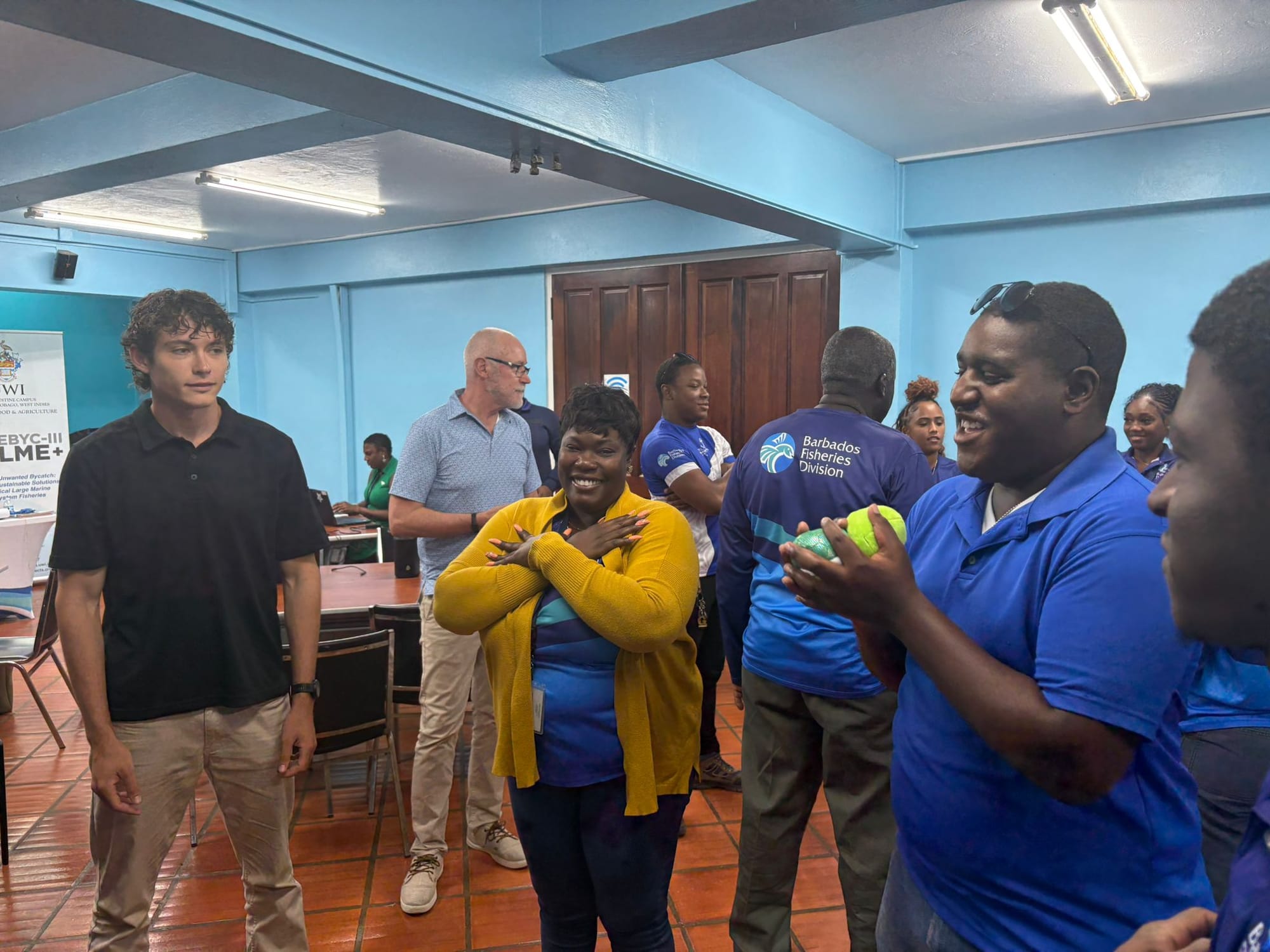
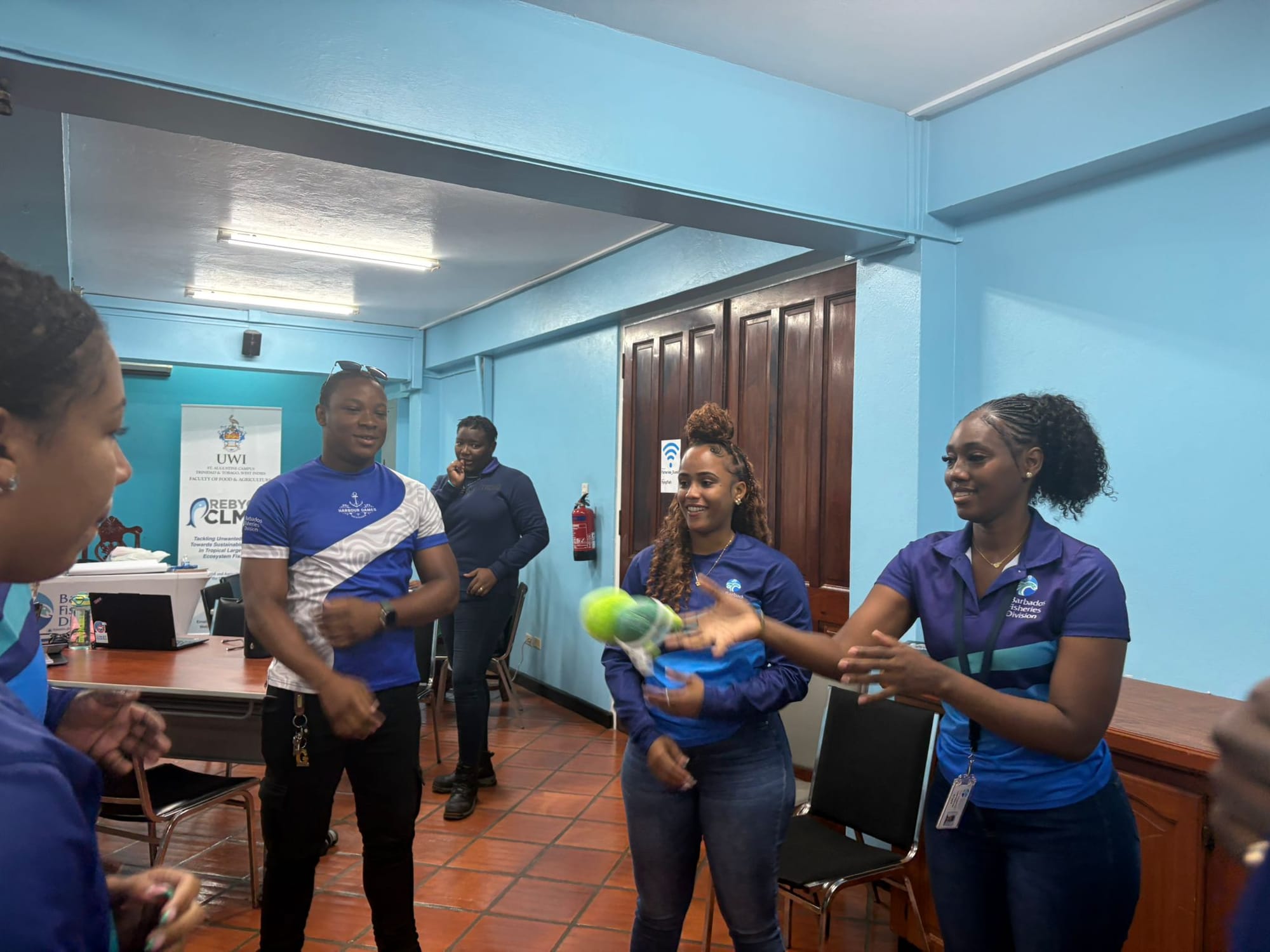
Read more about the project, also being implemented in other Caribbean countries, here: https://www.ffaprojects.org/projects/rebyc-iii-clme/

